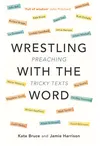There was once a time when the adjective 'evangelical' before the noun 'Christian' was a sufficient and adequate description of a clear and defined theological position. But then the definition of the noun became so diluted and neutralised that the adjective had to stand on its own.
All sorts of other adjectives now compete to qualify the new noun. So an 'evangelical' can now be conservative or liberal, open or even post. It's all very confusing since some of the descriptive terms seem to deny the meaning of the noun, at least the meaning it used to have as an adjective - if you see what I mean! A couple of years ago, I met a minister who described himself as a 'liberal catholic evangelical', though on further discussion the noun seemed to mean little more than that he thought church growth was better, on balance, than church decline.
If we have to find a defining adjective I think, on balance, I prefer the one suggested by Oliver Barclay in his book Evangelicalism in Britain, 1935 - 95 (IVP, 1997), which is 'classical' evangelicalism. It would be wonderful if the newer adjectives could all be dropped so that the word 'evangelical' could be released for its original meaning, but I fear that they are here to stay, and probably to multiply. Certainly, the title 'open' evangelical has grown enormously in use and popularity over recent years, but what exactly does it mean? Last year, a paper was produced by a group of self-styled open evangelicals entitled 'Towards a definition of Open Evangelicalism', which seems to answer the important question: 'Open to what?'








